Digital technologies have shortened the distance between countries and markets: we now live in the world, where selling or buying software, online courses, e-books, in-game items, templates, avatars, or application subscriptions from foreign vendors is not unusual anymore. For a customer, the whole process is easy. However, if you are a business owner, it is a completely different story.
To succeed on a global scale, a company has to comply with a variety of regulations in the buyers’ countries, including tax payments, compliance, personal data protection, fraud prevention, refund policy, and others. That will require hiring accountants, lawyers, auditors, and tax professionals with years of experience. While industry giants might still have the capacity to cope with the scale and volume of transborder operations, startups or small-scale software companies will probably consider these costs to be too high to enter the international market. However, they can seek help from a Merchant of Record (MoR) or a Seller of Record (SoR).
Merchant of Record and Seller of Record: What Are They?
Both a Merchant of Record and a Seller of Record are intermediaries that relieve developers, startups, SaaS companies and any other vendors operating in the global e-commerce market of the financial and legal aspects of online sales. A partnership with such an entity allows a supplier to focus back on their core operations, whether these are software development, podcast production, or template design.
When a vendor teams up with a Merchant of Record, a potential buyer will still surf the website of the vendor.
 If you want to buy a subscription to a time-management tool, you will still open the brand’s website to make the payment.
If you want to buy a subscription to a time-management tool, you will still open the brand’s website to make the payment.If a vendor operates through a Seller of Record, it entitles the SoR to sell its products as the original seller.
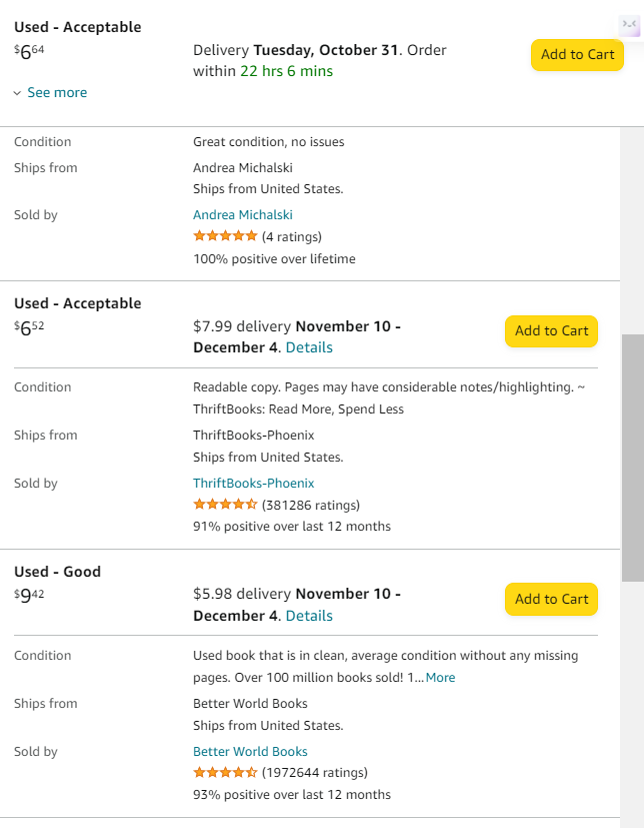 If you sell books on Amazon, you will be presented as an SoR that sells, packs, ships the book, and receives the payment.
If you sell books on Amazon, you will be presented as an SoR that sells, packs, ships the book, and receives the payment. Scopes: Similarities and Differences
MoRs and SoRs can occasionally fulfill similar functions depending on the business model your company relies on and the e-commerce logistics you implement. For example, either of them can collect payments, remit sales tax, ensure compliance and provide customer service. Still, they feature distinct differences:
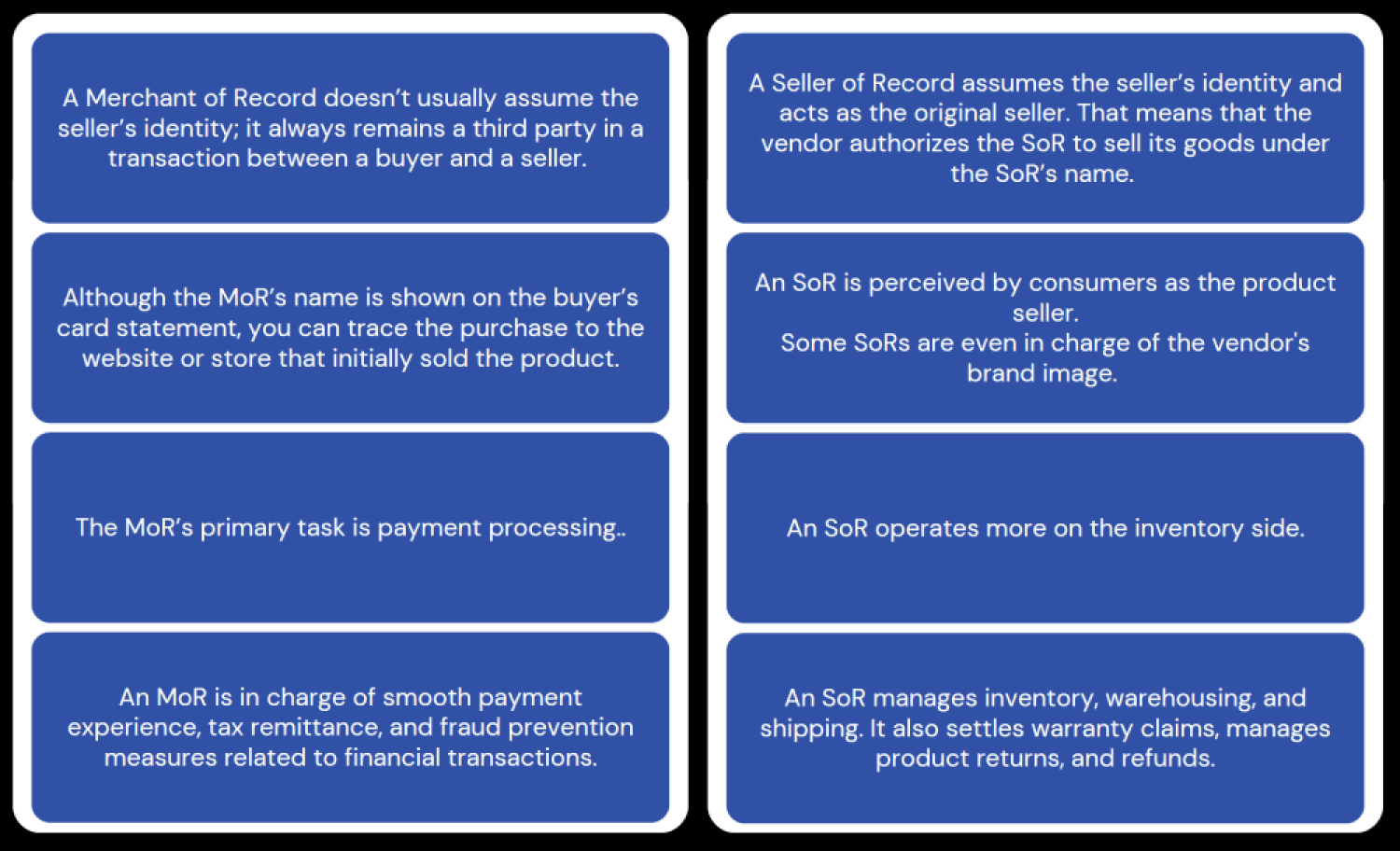
Merchant of Record Model
The MoR accounts for accuracy and security throughout the entire payment process: from the moment a buyer specifies their banking details until a business receives the funds.
MoR’s responsibilities include:
- Payment infrastructure management: To process transactions in a hassle-free way, an MoR manages the payment gateway and merchant accounts, coordinates operations with payment service providers and banks.
- Tax calculation and payment: An MoR determines, collects, and remits sales taxes, VAT, goods and services taxes (GST) to proper tax authorities in every country their buyers live, and in accordance with the regulations applicable in those countries.
- Fraud prevention: An MoR is obliged to implement systems to protect businesses and its customers from fraudulent actions.
- Customer data management: While managing transaction-related customer data, for example, personal details or order history, an MoR must meet privacy law requirements.
- Regulatory compliance: An MoR must observe a variety of financial and legal regulations, including Payment Card Industry Data Security Standards (PCI DSS), Know Your Customer (KYC) and Anti-Money Laundering (AML) regulations.
- Reporting and reconciliation: An MoR often generates reports on sales, refunds, and chargebacks. It might also be in charge of keeping financial records and reconciling transactions.
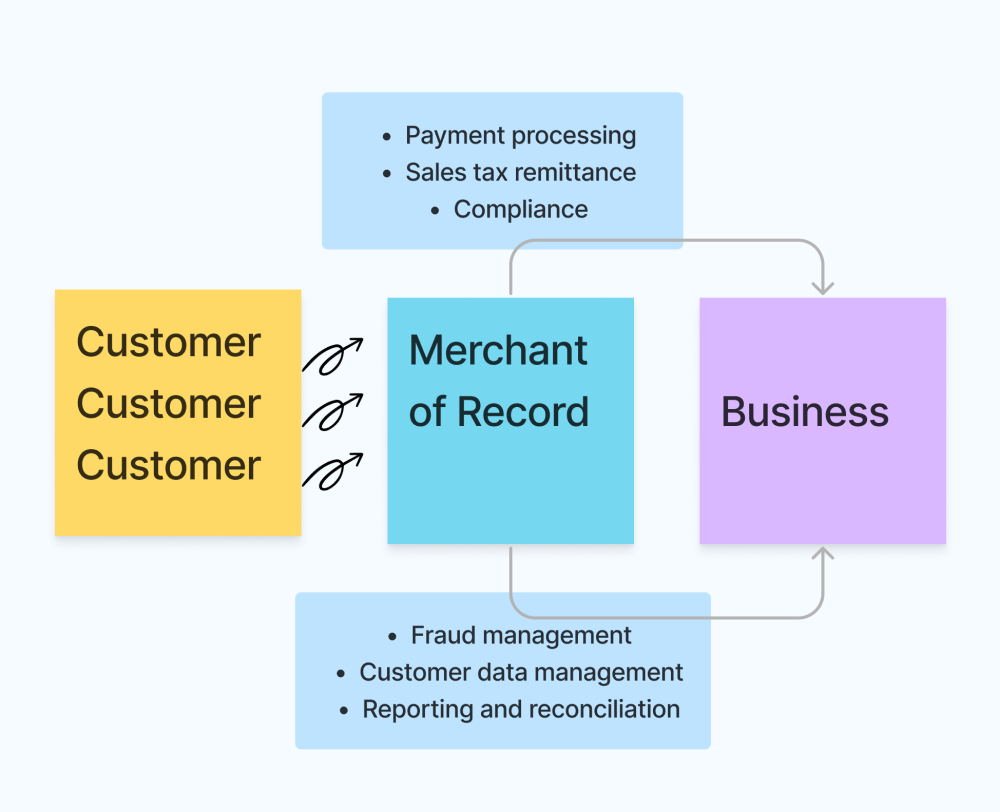
Seller of Record Model
The Seller of Record model defines who legally owns the inventory prior to the end customer. An SoR records the full amount of the consumer’s purchase as revenue, unlike a marketplace, whose revenue is a fee charged from a retailer for selling their items.
The main SoR’s responsibilities are:
- An SoR is typically in charge of delivering goods and services to the customer. Its area of responsibility includes handling refunds, returns and other issues end customers might encounter.
- In case of physical products, an SoR packs them in a commercially reasonable manner and ships them on the agreed date across the territory of its presence. It also submits shipment details and order status to end customers so that they could track their orders.
- An SoR sets the prices and bears certain product liability risks
- Tax authorities view an SoR as the company that must pay the sales tax and is subject to the tax audit. Similar to an MoR, an SoR is often responsible for processing payments.
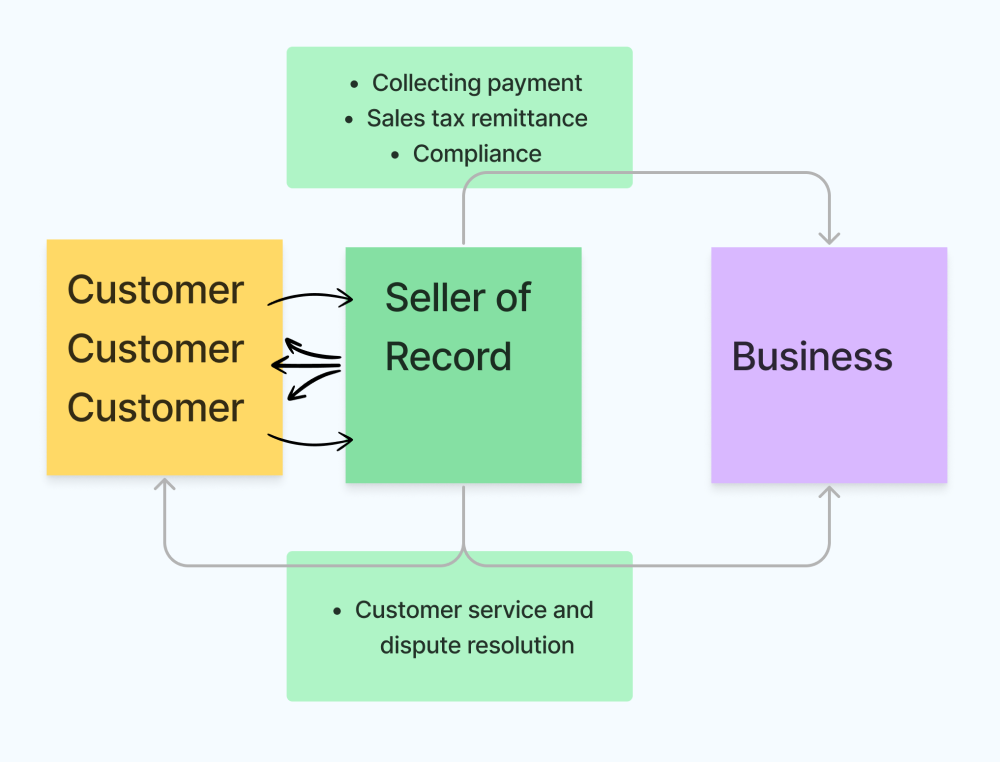
Benefits to Consider
Both MoR and SoR models are intended to enhance performance and optimize operations of a company that is trying to conquer the global e-commerce market. Thanks to such partnerships, a vendor can outsource a variety of complex business processes, from international transaction processing and tax payment to timely delivery across the globe and financial reports.
If we consider the MoR model being the more flexible one of the two, the key benefits it offers to businesses include:
- Easy integration: MoRs make it easier for vendors to enter the global market, as the entities already support popular e-commerce platforms, shopping carts and other e-commerce systems.
As a Merchant of Record, Number X supports smooth integrations with such payment platforms as Checkout.com, Pay U, Nuvei, Adyen, Airwallex, PPRO, Emerchantay, FIS, Ecommpay.
- Smooth payment processing: Payment processing solutions offered by MoRs allow businesses to make settlements smoother, enhancing user experience at the ordering stage. Eventually, fine-tuned processes will result in improved cash flows.
- Global scalability: For companies that want to grow globally, MoRs set up options to accept payments in different currencies.
- Anti-fraud measures and data protection: A well-established fraud prevention system improves transaction security and personal data protection. It adds to the positive brand image and helps the company grow faster.
- Outsourced customer support: MoRs ensure timely and efficient dispute resolution, which helps vendors gain trust and build better relationships with customers.
- Compliance: Both MoR and SoR models mitigate legal risks of their partners and prevent them from consequences for non-compliance.
- Tax management: MoRs or SoRs handle taxes the partner must pay across the globe. Outsourcing these tasks to professionals not only frees the company’s resources it can redirect to accomplish its principal goals, but also shields the business from penalties for violating tax laws.
Conclusion
A Merchant of Record and a Seller of Record are intermediary models that companies rely on when scaling their operations up and entering the global e-commerce market. The MoR model assists mostly with payment processing, while SoRs help primarily with shipments, product tracking, and refunds.
Generally, both models help:
- Implement and adjust seamless payment processing
- Handle chargebacks
- Remit taxes in different jurisdictions
- Submit reporting and BI as inputs for valuable future insights.
Outsourcing a wide range of business processes helps vendors focus on their core business line, freeing their resources for doing what they are really good at.
Number X is a successful example of the Merchant of Record model. The brand works with businesses selling online courses, in-game and in-app items and similar products. Partner up with Number X, and you won’t need to register with tax authorities, hire accountants, or maintain a network of legal experts around the world. Number X ensures your business will remain fully compliant with legal on every market you work on.
Contact us if you want to know more about our services.
- What Does a Merchant Do: Characteristics and Main Responsibilities7 min read / April 22, 2024
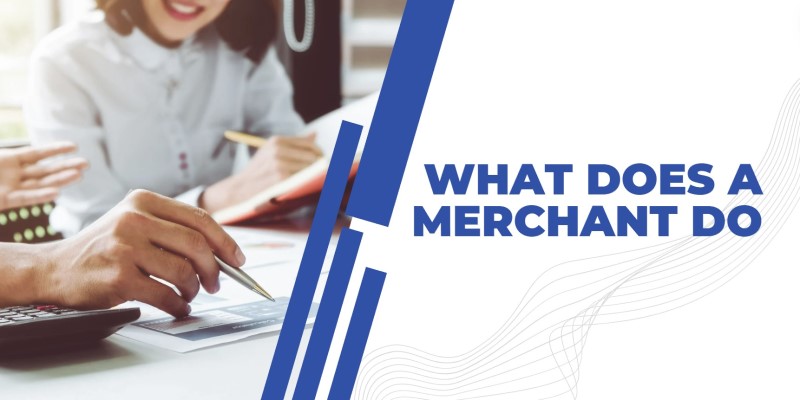
- Merchant of record (MoR): definition8 min read / March 20, 2024
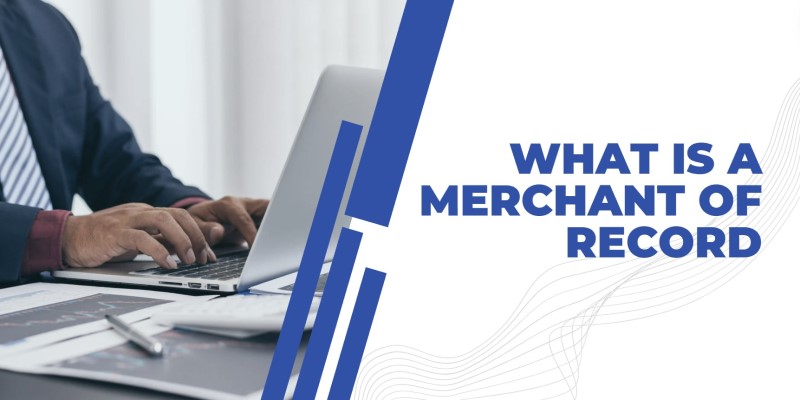
- Merchant of Record vs Payment Facilitator: What Is the Difference6 min read / April 1, 2024
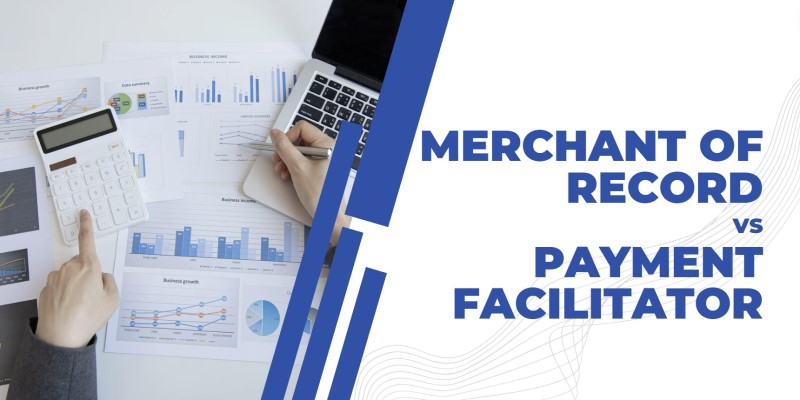
- What Is the Merchant Business Model?5 min read / March 20, 2024
